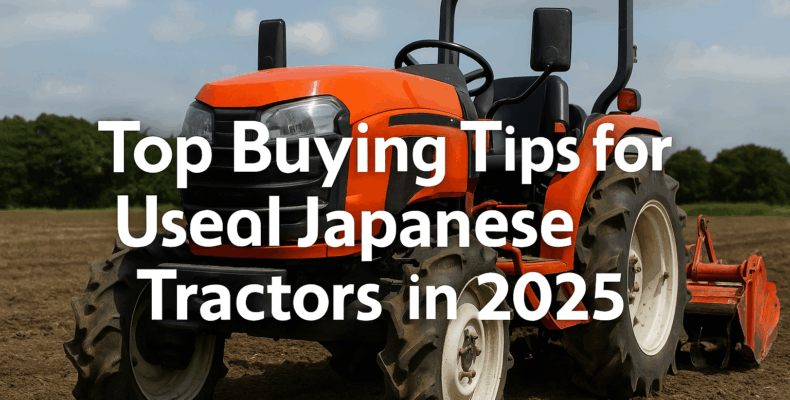Buying a used tractor can be a smart investment—especially when it’s a well-maintained Japanese model. However, to make the right decision, buyers must pay attention to several key factors. Whether you’re a first-time farmer or a seasoned agricultural operator, choosing the right tractor will boost productivity and reduce future repair costs.
1. Check the Engine and Hour Meter
First and foremost, inspect the engine’s condition. A clean-running engine with no oil leaks is a good sign. Additionally, the hour meter gives you an idea of how much the tractor has been used. However, don’t rely on this alone. Combine it with visual checks and a test drive.
2. Examine Tires and Undercarriage
Worn tires may look like a minor issue, but replacing them can be costly. Also, ensure the undercarriage is rust-free and structurally sound. Many used tractors from Japan are in great condition due to regular maintenance and milder climates.
3. Test All Functions and Hydraulics
Don’t skip this step. Confirm that all controls, PTO shafts, and hydraulics are operating smoothly. Even if the tractor is used, it should function reliably.
4. Verify Maintenance Records
Always ask for service history. Tractors that were serviced regularly offer better longevity and fewer problems down the line. Many Japanese exporters maintain detailed records, giving buyers more confidence.
5. Understand the Tractor’s Application
Make sure the horsepower and size fit your intended use. For small farms or orchards, compact models work best. For larger operations, you may need more horsepower and a wider wheelbase.
6. Consider Tractor Attachments
Rotary tillers, loaders, and plows often come with the tractor. Check compatibility and condition. Buying a tractor with the right attachments can save you time and money.
7. Choose Trusted Exporters
Not all exporters offer the same level of service. To ensure safe, legal, and smooth shipping, work with reliable companies that have experience and verified track records.
➡ Check our Top 5 Trusted Japanese Used Truck Exporters for Global Buyers to find exporters you can count on.
8. Understand Import Requirements
Every country has different rules. Confirm that the tractor meets your country’s import laws and that documents like the Bill of Lading, Export Certificate, and Invoice are correctly prepared.
Conclusion
In conclusion, buying a used Japanese tractor is a great move if you follow these essential tips. Focus on engine condition, service records, and suitable attachments. Moreover, partner with a trusted exporter for peace of mind and smooth delivery. With careful evaluation, your next used tractor can deliver reliable performance for many years.
